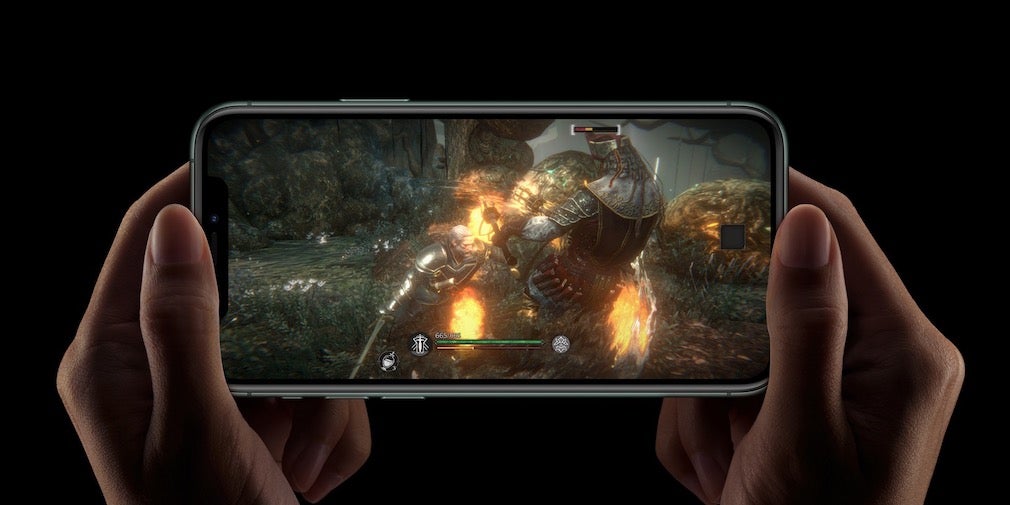Kill mobile gaming? Is mobile gaming dead? Isn’t it still worth millions and still draws in people from all over the world to suckle on the Freemium teat? Yes, all of these things are true, and yet smartphone gaming was once hailed as the platform that would change all gaming. Finally, small developers and independent developers had a place where they could put their lovingly crafted games and make enough money to break into developing real games for the PC and on consoles.
We started seeing innovative new games and great new concepts, many of which were adopted by console gaming. But now? Now the smartphone app market is a wasteland of poor quality content, clones of clones, and poorly reviewed garbage. Smartphone gaming is not dead, but it certainly hasn’t reached the heights that it could. There is now more money spent on Lost Ark gold than there is spent on all top ten smartphone games in the charts right now.
The Hacker’s Back Door
Over time, and after a great many news items about rogue Smartphone apps, we have finally come to learn that Smartphone apps can be used by hackers as a back door into people’s phones. The sad part is that there are many apps that actually have theirs as their core mechanic.
Those apps where you are able to spy on people using your own phone or theirs, it must have occurred to some people that the developers of the app could also harvest information from the phones on which the apps were installed. Have hackers shaken people’s confidence in Smartphone gaming? Yes, but only a little. Read on to find out the many other elements that have come together to take the wind out of the smartphone gaming industry’s sails.
The Private Information and Data Leaks
We can blame hackers for this one, as well as poor quality developers and complacent security measures. Frankly, there are a lot of reasons why private information and data leaks have been so common. With every news leak (or email) about a new data leak, people’s confidence in smartphone games goes down. Why bother with all the fuss and inconvenience for the sake of a smartphone game? Unless the game has a big name behind it, like Fallout Shelter, Angry Birds, Candy Crush or Cut the Rope, then there is really no need or desire to risk playing it. Also, as a side note, did you know you have to be 13 years old to play Cut the Rope? Are there later levels that are not PG friendly? What is all that about?
Time To Blame The Kids
Blaming hackers, malware, greedy companies and poor quality security is all well and good, but many people forget that kids are a massive problem in the smartphone gaming market. They are a big reason why it is struggling to reach the heights we all hoped it would. Kids are the ones downloading “Flappy Burd 5” from the re-skinned website that looks like an Android store. Kids are the ones agreeing to have every part of their phone probed by their apps, and they are the ones who will happily use mummy and daddy’s credit card to buy a temporary upgrade to their castle for the fifth time today.
The Smartphone Permissions Function
Greedy companies plus the smartphone permissions function could be one of the biggest reasons why the smartphone gaming market is now a wasteland of poor quality games and hollow services.
Apps ask for a slew of different permissions, and people are becoming increasingly uncomfortable with what they are asking for. Perhaps WhatsApp does need permission to use our contacts list and camera, but why does a Battleship game and why does an astronomy app need our contacts list? People are seeing these sorts of things, and rather than dissuading them from using/downloading that app, it is scaring them away from smartphone gaming as a whole.
The Darned Third-Party Sign Up
We want to download a game or app from our smartphone store and then play it. What we don’t want to do is then have to sign up with some sort of EA, Ubisoft, Epic Store, etc., account so that we can play the game.
Having a different sign-in function may work for things like anti-malware software because we need to link our services with our phone but having to sign up and/or sign in twice to play a game is simply too inconvenient.
The Hackers’ Anti-Malware Backdoor
A pretty nifty trend is to use an approved app as a way of sneaking functions around the user’s anti-malware software. Your malware can sit hidden because some of the most identifiable functions are being undertaken by an app that the user has already added to their phone. This sort of thing is rarely exposed in the news, but when it is, people are yet again scared away from smartphone gaming.
Those Crypto-Mining Apps
The trick here is to give somebody a game, preferably something like an idle clicker where the game is expected to stay on for a long time. While the game is playing there is a mining program that is making cryptocurrency money for the developer. This sort of thing was more popular back in the days before you needed GPUs as powerful as jet engines in order to mine. Nevertheless, people found out that their phones were going slow because their apps were mining cryptocurrency behind their backs, and people lost interest in mobile gaming.
Did The Newness Wear Off?
There is the possibility that it wasn’t hackers, greedy companies, or even those pesky kids that did the damage. It is possible that smartphone gaming has started to stagnate because the newness has worn off. It is the Wii and Motion-Controls problem, where it is very popular at first, but becomes increasingly less popular as the newness wears off.
Perhaps people are simply done with Smartphone gaming. They may still play a few of the popular titles, but people aren’t excitedly running through the games anymore. People are not watching YouTube channels on the newest games. What is the hype for the next big smartphone game? Who knows, and frankly, who cares?
Did The Greedy Companies Win?
When “Flappy Birds” became a thing, the developer took it down because even its cheap clones were making stupid amounts of money. The sad part is that the developer took it down because he didn’t want the smartphone industry to become a place for cheap throwaway software. Yet, that is all that the smartphone gaming industry has become and that is because of greedy companies and greedy indie developers.
Even if a game is only marginally successful, it spawns copies very quickly to the point where some people suspect there are AI-built re-skins being pushed onto smartphone gaming stores. One may say that better quality control in the stores is required, but it is almost impossible and it is highly discriminatory.
For example, another clone of Minecraft is probably going to be garbage, but what if out of the next 50 that are made, there is one that pushes the concept forwards and makes it even better? How can a shop/store know which is which?
As another example, think about a game like Vampire Survivors. It looks like a very cheap hacked-out game, and yet is probably one of the most addictive games of the year.
How could a store possibly moderate these apps? Even Steam, with all its AI power, is unable to separate the good from the exploitative. It has taken them years to finally enforce early-access standards so that people can’t simply throw a bunch of pixels on a screen and call it a game.
The companies and developers that churn out copy after copy, the developers who do not innovate, and those who do not care about the user’s time or money …these are the ones destroying smartphone gaming. The other reasons in this article are quite probably part of the reason, but in the end, the lack of innovation and the wasteland that is smartphone gaming is due to companies and developers putting greed above good gaming.


















